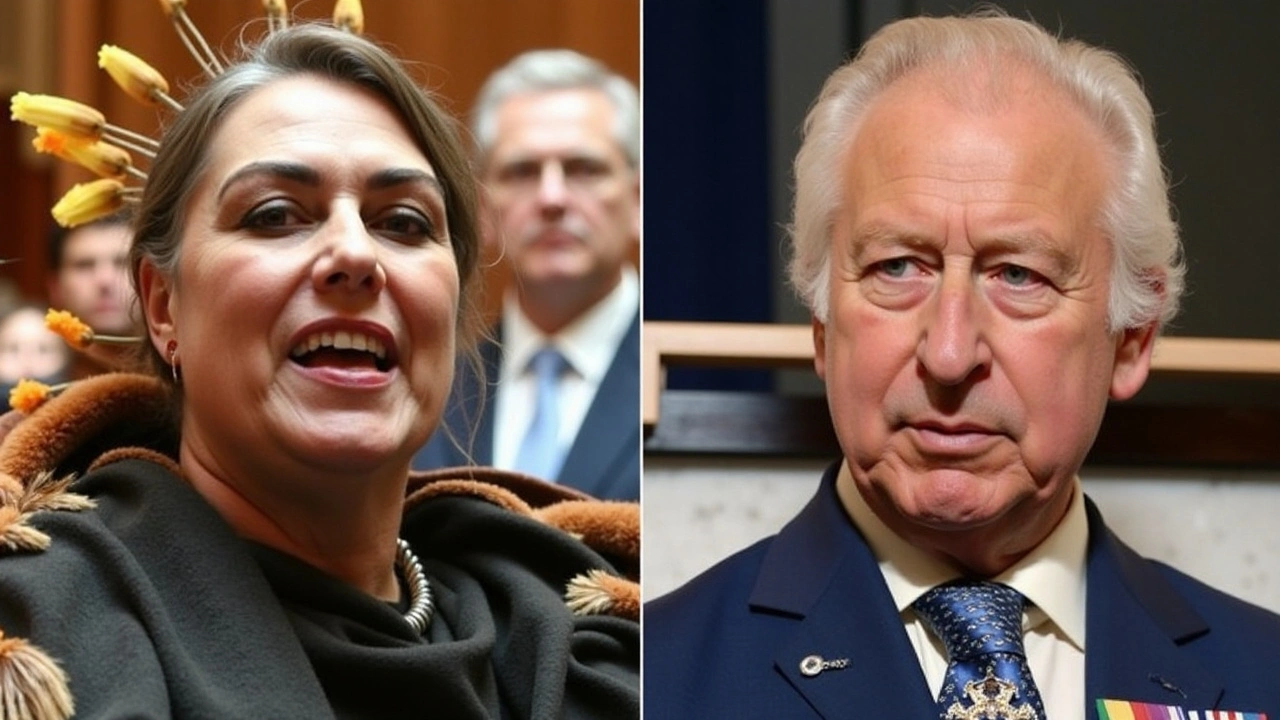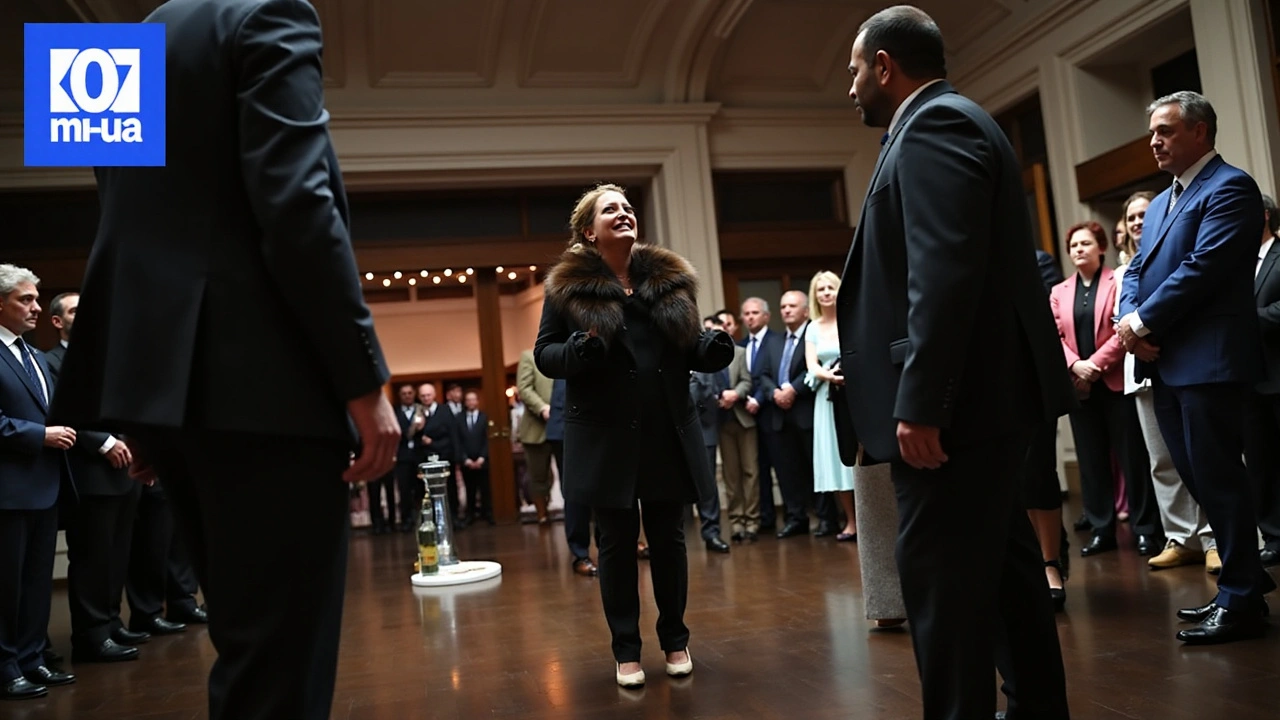Australian Senator Lidia Thorpe Challenges Monarchy's Sovereignty in Bold Protest

Lidia Thorpe's Confrontation with Monarch Reflects Enduring Struggle for Indigenous Rights
In a striking display of defiance, Australian Senator Lidia Thorpe made headlines after disrupting King Charles III's address to the Australian Parliament. During the proceedings, Thorpe's voice rang out, a stark reminder of unresolved grievances. Her demands for the return of ancestral lands and a formal acknowledgment of Indigenous Australians' sovereignty cut through the pomp and ceremony, leaving a marked impression on everyone present. Security personnel quickly intervened, escorting Thorpe from the parliamentary chamber, but her message still resonated. 'Give us our land back. Give us what you stole from us...' she declared to the monarch, a statement laden with historical and cultural significance. In the ensuing media storm, Thorpe continued to defend her actions, underscoring a deep-seated narrative that the British monarchy played a pivotal role in the colonization and disenfranchisement of Indigenous Australians. Her stance calls for more than just public attention; it demands systemic change.
The Call for a Treaty and Reparation
Shortly after her arrest, Senator Thorpe granted an interview to Kay Burley on Sky News Breakfast, reiterating her pleas. 'We are the true sovereigns of this nation,' she stated unequivocally. For Thorpe, the call isn't just about symbolic gestures but crucial steps towards reconciliation. Central to her demands is the return of Aboriginal remains and cultural artifacts—a painful reminder of the legacy of colonization and its continued presence in institutions like the British monarchy. King Charles III, Thorpe argues, cannot assume the role of a monarch over a nation that never consented to such sovereignty. This sentiment is one deeply embedded in the acknowledgment that colonial powers left indelible marks on Indigenous lands and societies. The call for a treaty with Indigenous Australians isn't radical but a genuine step towards healing past injustices. It's an invitation to engage in meaningful dialogues and to forge a future that respects the inherent rights of Indigenous peoples.
Understanding the Historical Context
In explaining her use of the term 'genocidal,' Ms. Thorpe pointed to the historical accounts of massacre sites and systemic violence against Indigenous populations. These tragic episodes underscore the legacies of colonial occupation—a wound that, despite the passage of time, remains fresh for many. Thorpe's bold declarations are not borne out of isolation but as part of collective Indigenous narratives waiting to be acknowledged both legally and morally. The senator's actions, while controversial, spotlight a broader discourse on accountability. As Thorpe stated, King Charles III, as the current head of a monarchy steeped in colonial history, bears responsibility. Her recent protest comes amidst broader calls for a reassessment of historical narratives and the creation of new dialogues centering Indigenous voices. Critics may perceive Thorpe's methods as abrasive, but for many Aboriginal Australians, her voice represents an unwavering push for justice and recognition.
Sustaining Awareness and Global Solidarity
Lidia Thorpe's protest extends a call to not only national but global audiences, drawing attention to historical injustices perpetuated by powerful institutions. As she said, the impact of the British royals is not confined to Australia but felt by Indigenous communities worldwide. Her statement illuminates transnational solidarity with marginalized groups, fostering conversations around shared histories of colonization. The senator made no secret of her unwillingness to pledge allegiance to the late Queen when entering politics. It's a decision aligned with a broader political aim to challenge and dismantle systems that have, for centuries, ignored Indigenous voices. Such actions, while divisive, illustrate a continued resistance inherited and adapted by new generations of Indigenous leaders. They speak to a broader theme of resistance, reclaiming narratives, and amplifying calls for enduring justice.

Camberra's Demonstration and Royal Audiences
Senator Thorpe's protest didn't occur in isolation. Earlier in the day, she joined approximately 20 demonstrators as the royal couple laid a wreath at Canberra's war memorial. The juxtaposition between ceremony and demonstration highlighted the changing landscape of Australian political and cultural identity. Thorpe's defiance at this event reinforces the conversation of national identity, the place of monarchy, and the respect and restoration needed for First Nations people. As King Charles and the Queen continue their tour, their visit coincides with escalating dialogues about Australia's constitutional future, the enduring impact of colonial legacy, and the potential for real, transformative change. This ongoing dialogue reflects an evolving relationship between Australia’s historical narrative, its present governance, and its cultural future.